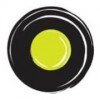Indian Institute of Technology (IIT), Mumbai
Mumbai, Maharashtra
Your seniors at Indian Institute of Technology (IIT), Mumbai helped you with their notes. Now they're helping you with their placement interview questions. 🙏

Indian Institute of Technology (IIT), Mumbai
Your seniors at Indian Institute of Technology (IIT), Mumbai helped you with their notes. Now they're helping you with their placement interview questions. 🙏









